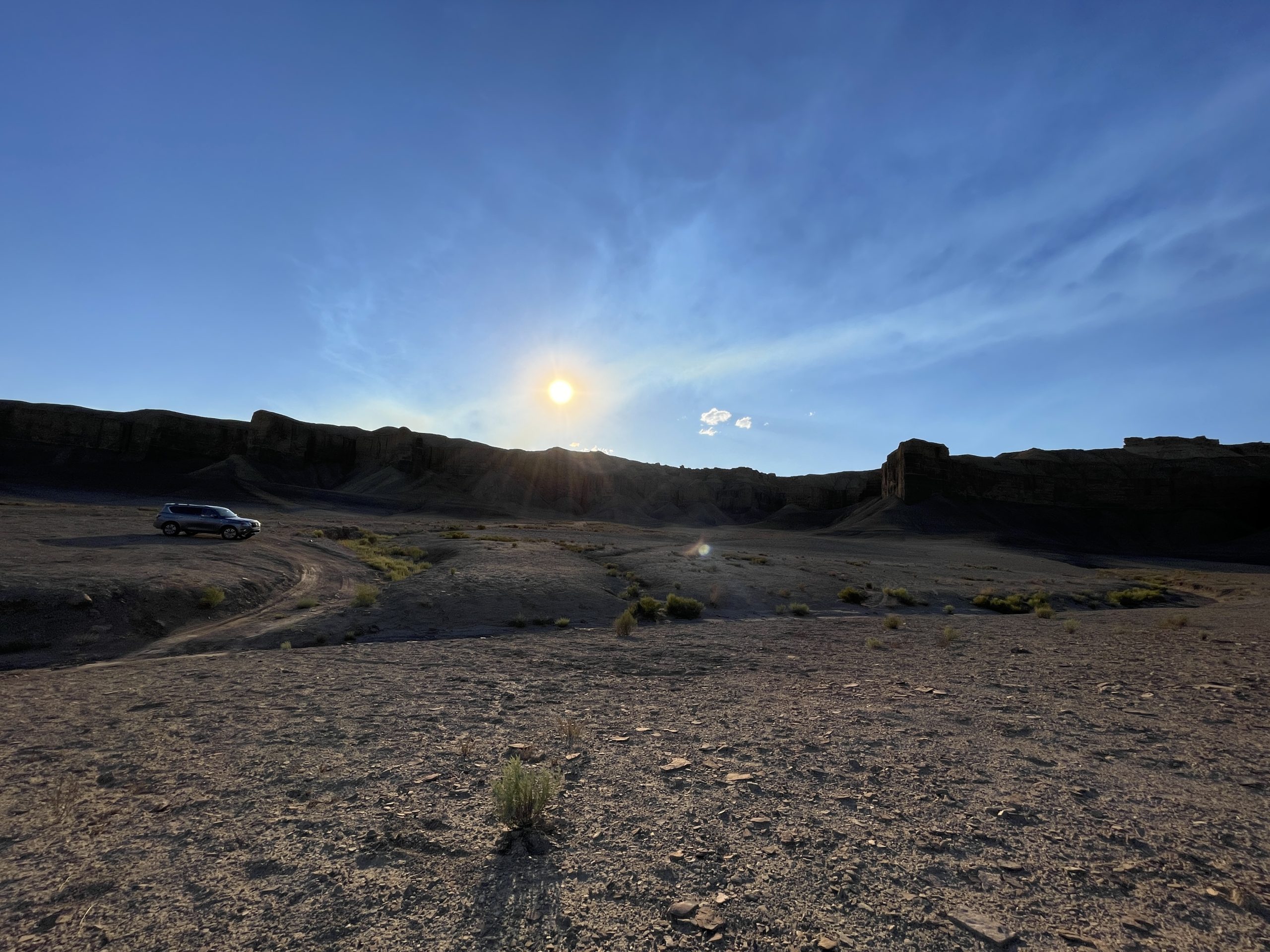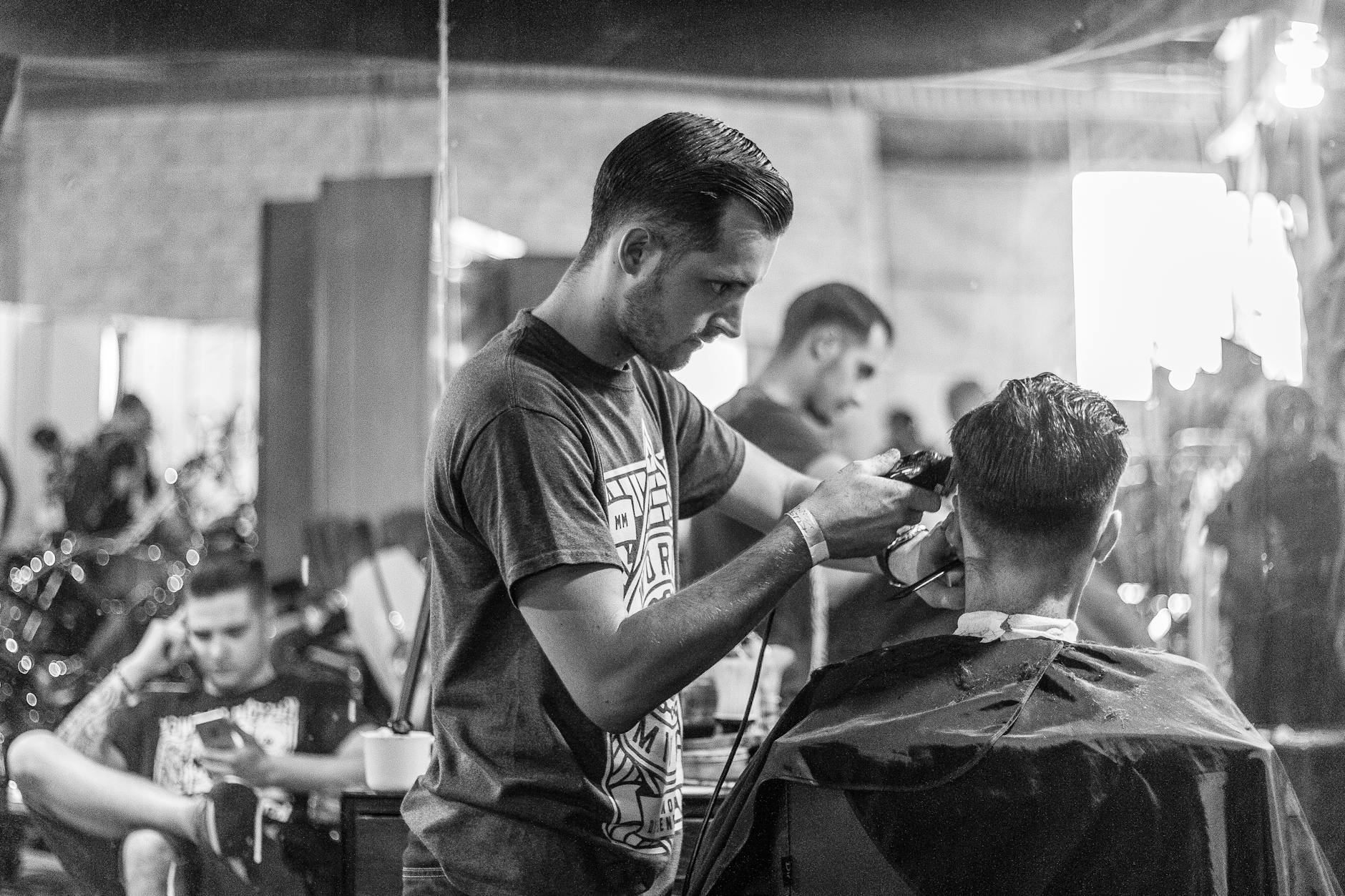
The War That Followed
A Short Story
A firm Spring breeze swept deceptively across Camp Shelby’s old Vietnam War-era barracks. Within minutes, skies darkened, and a calm quiet blanketed the entire post.
Most of the local inhabitants of the Gulf Coast knew the drill. Listen for emergency sirens, stand on the front porch staring at dark clouds in the distance, continue to gaze at the horizon as if you’re welcoming an unlikable distant cousin, and finally go back inside to watch TV like you were doing five minutes earlier. There was usually no point in seeking shelter because, often, no better shelter was available in these rural enclaves of South Mississippi.
The weather prognosticators out of New Orleans were on the TV and radio all morning, breathlessly reporting on a fast-moving cold front that was scurrying southeast toward Hattiesburg, accompanied by the exact times it would be hitting various towns and communities. Most of the place names sent viewers to maps for identification because most folks hadn’t heard of Whynot, Mississippi.
Spring cold fronts often yield violent storms and general unpleasantness in the south. And they lowered the temperature by one or two degrees in the summer.
At Camp Shelby, hundreds of Soldiers were waiting their turn to be sent by their government to a distant country overseas to fight a war, which affected them little. They would only ship out after they’d had enough desert-style training (among the hundreds of square miles of pine forests) and an initiation into the local culture to which they were headed. Other Soldiers at Camp Shelby had recently returned from the war zone and were ready to make their journey home to waiting families.
Company Commander, Captain Henry Greenwood, and his Soldiers were among the group waiting to go home. In typical fashion, the Army insisted that these Soldiers wait five weeks just to “process out” of Camp Shelby. They don’t say, “Hurry up and wait” in the military for nothing.
Henry was a 26-year-old middle school teacher from Atmore, Alabama, who also served part-time in the Alabama Army National Guard as a field artillery officer. He was married with one boy and two girls, all under the age of eight.
Henry had enlisted in the National Guard at 18, spent four years as an infantry Soldier, and rose to the rank of Sergeant. Because he had completed his undergraduate degree, he requested and received a commission as an officer, which came with more money but a great deal of more responsibility.
In a dry and dusty day room in the old, dilapidated, Vietnam-era barracks, Henry reclined on a worn leather sofa and, despite his desire not to, recalled the previous year in Afghanistan.
The barracks, which stood on the south side of Camp Shelby, had withstood storms with strong winds and devastating rain before. Many times. But they all ended without too much mayhem.
The old barracks normally housed around fifty Soldiers, but if needed, could hold 20-30 more.
Camp Shelby has been around since its creation in 1917 and provides some economic benefit to the sparsely populated surroundings as well as the small town of Hattiesburg.
Henry’s Soldiers rested around the few open areas of the barracks. Some spoke on the phone with their girlfriends, wives, mothers, and at least one with a bill collector. Others played board games, which the administration of Camp Shelby had graciously provided. Still others sat alone, preferring the solitude.
But most of the Soldiers played on their phones. They’d just returned from an unforgettable deployment in Afghanistan, where their battalion had lost 17 Soldiers and another 46 injured. Some were at Walter Reed, while others were at Brooke.
All of Henry’s Soldiers at Camp Shelby were happy to be almost home. After being on the other side of the globe and fighting people with whom they had no quarrel, the knowledge that they were now within driving distance of their hometowns was almost too much to handle.
Henry looked up for a moment as the wind whistled through the eaves and crevices of the old barracks. For a few minutes, he dreamed he was back home in Alabama, in the deer woods, or maybe at his daughter’s school…
***
As Henry dozed, he found himself glaring through the dirty truck window of his 2001 Chevy Silverado, trying hard to recognize the flags in front of his daughter’s school. His truck radio blared something about a tornado warning. But Henry was in a hurry to see his daughter and usually ignored what he called “panic warnings.”
‘Man, I hope the company is all OK in this mess,’ he thought.
He had driven to the Juanita Kay Montrose Elementary School to have lunch with his 7-year-old daughter, Rochelle. The flags snapped loudly as the strong west winds whipped them. Henry turned to stare at the quickly changing weather and shook his head, remembering the insane world he left behind in Kabul.
The school flags waved as the wind picked up.
The first person he met was Ms. Wrangler, the school secretary. Her crooked smile greeted him as he entered the front office area. Henry often wondered how such a sour person had landed a job working with children but extinguished that thought as he neared her desk.
‘You catch more flies with sugar than vinegar,’ he thought.
“Here to see Rochelle for lunch,” Henry said.
The secretary ignored Henry, as she always did, and drew her attention back to the computer screen in front of her and her bid on a cherry-red Chevy Tahoe on eBay.
Henry ignored her, trying to remain nice, picked up a pen, scribbled his name on a puke-green visitor’s tag, and affixed it to his shirt pocket.
Henry started walking down the hall toward Rochelle’s classroom. It should have taken less than two minutes to reach her room. At about ten feet into his journey, Henry felt dizzy and slammed into the wall next to a Crayon rendition of George Washington. He steadied himself with his hand against the wall until he could walk straight again.
‘Good grief, Henry! Are you drunk?’ he said to himself.
There was only silence echoing through the corridors. There should have been a cacophony of children’s voices drowning out his footsteps by now.
‘Where is everyone?’ Henry wondered.
The only sound that arose from the hallway was a piano version of Moonlight Sonata playing over a boom box in the lunchroom.
Henry stopped in the hallway for a long minute before walking back toward the front office.
Ms. Wrangler was gone. And where was Rochelle?
Henry sprinted back to Rochelle’s room. She was not there.
No one was there.
Henry headed for the main exit door in the front. The sunlight steadied his confusion.
Henry sat on a concrete bench just outside the front door. As he looked over the front lawn, he noticed again the school flags waving in the still air.
A moment later, the sound of automatic gunfire rattled him. A live round grazed his head as he retreated to the closest piece of earth he could find. Thoughts of his daughter’s elementary school faded. It was like the bloody Afghanistan he had left weeks earlier.
Yards away, the earth exploded, sending a horizontal shower of crystallized molten metal and dirt falling from the sky. Henry prayed that the shrapnel wouldn’t find its way to his legs. His prayer wasn’t answered favorably as shrapnel pierced both calves.
Henry spotted a cinder-block building about twenty-five yards to the north, checked for more approaching fire, mentally calculated the distance, and sprinted with blood coming from both legs, diving through an open window.
He landed hard on the floor, which was expertly carpeted with shattered glass. Blood seeped from the wounds in his legs. When the shelling stopped, Henry heard cries. He instinctively searched for a radio to call for a medic.
Henry heard another whispered whimper. A moan. And a sharp cry of pain. He couldn’t pinpoint the source.
Atop the metal pole, the flags stopped moving.
And then there was silence.
Henry combed his right hand through his hair, bent over, and rested his head in his hands. He wanted to go back to the school’s front door. But no one was there. The screams reminded him of a train engine. Pain shot through his legs, and he inched closer to the cries.
Henry awakened from his dream at the same time a massive tornado was tearing a path of destruction through the pine trees and had its eyes on the barracks and the rest of the base.
In the day room, all his Soldiers were relaxed, sprawled out on the floor, and dying to get out of Camp Shelby and go back home.
The intensity of the storm picked up outside the remodeled Vietnam-era barrack. The holes in the walls whistled.
And then the winds stopped; the flag clung to the side of the pole, lifeless. The TV was silent and in several pieces.
***
As the thirty-eight emergency sirens scattered throughout Camp Shelby thundered, Henry awoke from his dream, regained his senses, and jumped to his feet. The weatherman on the battery-powered radio said that the funnel cloud was a good two miles to the northwest of Camp Shelby.
Henry surmised the situation and guessed, correctly, that the old barracks in which he and his Soldiers were currently housed would not withstand a hit from a stronger wind, let alone an EF4 tornado.
Of all the tactical and survival training Henry had received from the Army during his whole eight-year career, nothing had prepared him to face down a tornado and lead his Soldiers to safety.
He wasn’t sure what, but something had to happen fast. Maybe it was as simple as getting to a real storm shelter ASAP.
As Henry contemplated the move to more quality facilities, the roof over the west end of the barracks decided to go AWOL, being pursued by a strong precursor wind to the tornado.
“Corporal Jenkins,” Henry said, making out the Soldier lying near rubble from the roof’s evacuation.
“Can you walk?”
“Yes, Sir,” the corporal said.
“Good. Let’s get the rest and get to the dining hall next door ASAP,” Henry said.
“Copy that, Sir,” Jenkins said.
Both men moved in hurried unison as they checked on the Soldiers hit by debris, helped them to their feet, and exited the old barracks, which collapsed into a pile of splinters and shingles. So, staying there was no viable option.
The tornado was one mile away.
Four Soldiers from another company, in contradiction to one of the basic rules of tornados, decided that the best way to safety was to get into a jeep and drive to the dining hall, which was specifically designed to withstand tornados.
They didn’t make it to safety.
But they did find a ditch filling quickly with rainwater.
Henry and his Soldiers managed to reconnoitrer about 100 yards from the dining hall.
“Keep moving,” Henry ordered. “We can’t stay out here. The tornado is actually visible now,” Henry said.
Every Soldier looked towards the menacing funnel cloud barreling toward them and gasped.
“Just a few more feet,” Henry said as the wind and rain made walking almost impossible.
“Come on, Sir. Y’all get in here,” said Kathleen Grundy, a dining hall employee holding the door for the Soldiers to enter.
Four local firetrucks, along with two from Camp Shelby, sped onto the base and headed toward the barracks.
A Camp Shelby fireman reached the waterlogged Jeep first. They were hanging on by a thread and in no shape to escape on their own.
“Over here. Quick! They’re still alive,” one of the firemen said.
The broken bodies of some Soldiers and civilian employees were scattered to the four corners of the post. Some would not be going back home.
“Hold tight, private. We’re gonna get you out of here,” a medic said to the Jeep’s driver.
Before retreating into the grey Mississippi sky that spring afternoon, the twister plowed through most of the adjacent counties, leaving a scene reminiscent of a distant and brutal war.


